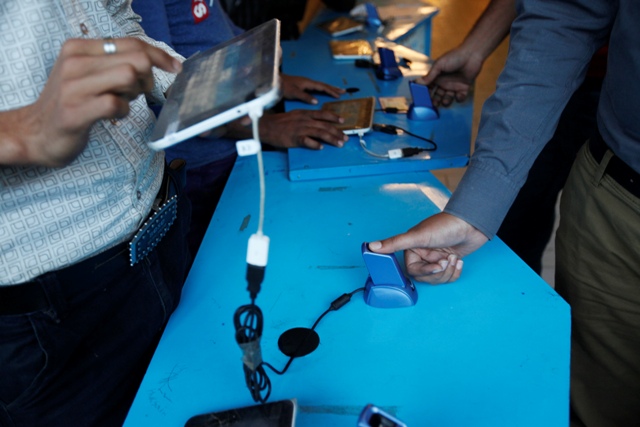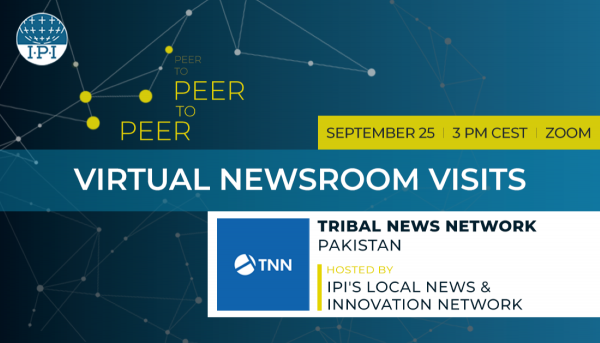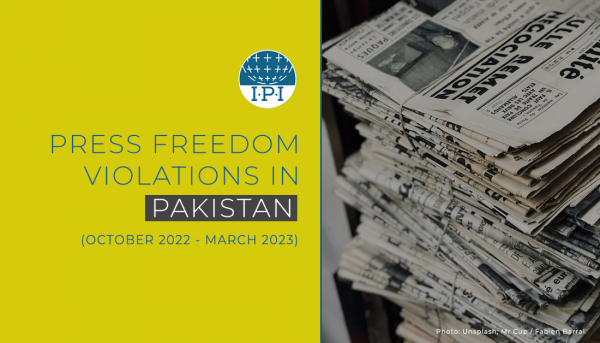The International Press Institute (IPI), a global network of editors, media executives and leading journalists for press freedom, today urged the government of Pakistan to have an open and transparent discussion with stakeholders on controversial new social media regulations.
In January, the Pakistani government introduced new rules to regulate all social media usage in the country. Under the Citizen Protection (Against Online Harm) Rules 2020, the government has the power to compel social media companies to provide authorities with user data and information.
The regulation was implemented without public debate and it has largely been seen as an attempt to control free expression in Pakistan and curtail criticism of the government. Journalists in Pakistan told IPI the regulation could lead to direct censorship, and undermine their ability to disseminate information on social media, forcing them to practise self-censorship.
After vehement criticism by local and international organizations, the government suspended the implementation of the rules and set up a committee to review the plans.
The committee, headed by Pakistan Telecommunication Authority (PTA) chairman Amir Azeem Bajwa, is about to hold consultations with “all relevant segments of civil society and technology companies”.
However, efforts to hold talks with stakeholders have stalled after over 100 rights organizations and individuals announced a boycott of the consultations unless the rules were revoked.
In a joint statement, obtained by IPI, these organizations have demanded that the agenda and the process the committee intends to follow be made public and the timelines clear. It says that all input provided must be documented and compiled in a report to be disseminated for public feedback with specified and reasonable timeline. Before this, no rules should be approved or enforced.
These organizations have said that the government should first address the arbitrary nature of Section 37 of the Prevention of Electronic Crimes Act (PECA), under which the social media rules have been issued. They say that the abuse of power by the PTA and government while implementing the section should be reviewed. Civil society in Pakistan has been categorical in demanding that Section 37 should be repealed.
“Pakistan’s Citizen Protection (Against Online Harm) social media regulations seriously threaten freedom of express and press freedom online”, IPI Deputy Director Scott Griffen said. “The government must include a broad range of stakeholders, including representatives of the media, social media companies and human rights organizations in the committee, and the concerns of these stakeholders, as well as all relevant international standards, must be reflected in any measures to replace these regulations.”
Direct censorship and sowing fear
The social media rules announced in January make it mandatory for social media companies such as Facebook, Google and Twitter, to remove or disable within 24 hours any content deemed “unlawful” by the Pakistani authorities. “In case of emergency” the company should act within six hours. The emergency case was to be determined by a National Coordinator.
Social media companies are also required to prevent live streaming of any content in violation of any law, in particular regarding content related to “terrorism, extremism, hate speech, defamation, fake news, incitement to violence and national security”. Social media companies must also provide information, such as subscriber information, traffic data or content data, to authorities.
The new rule said that social media companies would have to establish a permanent office in the country’s capital Islamabad within three months and appoint a person based in Pakistan for “coordination” with the authorities. Companies should also establish servers within a year to record and store data and online content.
Social media companies, including Facebook, Twitter and Google, have joined together to contest the regulation and threatened to leave Pakistan. They have issued a response to Pakistan’s prime minister, Imran Khan, through the Asia Internet Coalition (AIC).
“The rules as currently written would make it extremely difficult for AIC Members to make their services available to Pakistani users and businesses”, the companies said.



